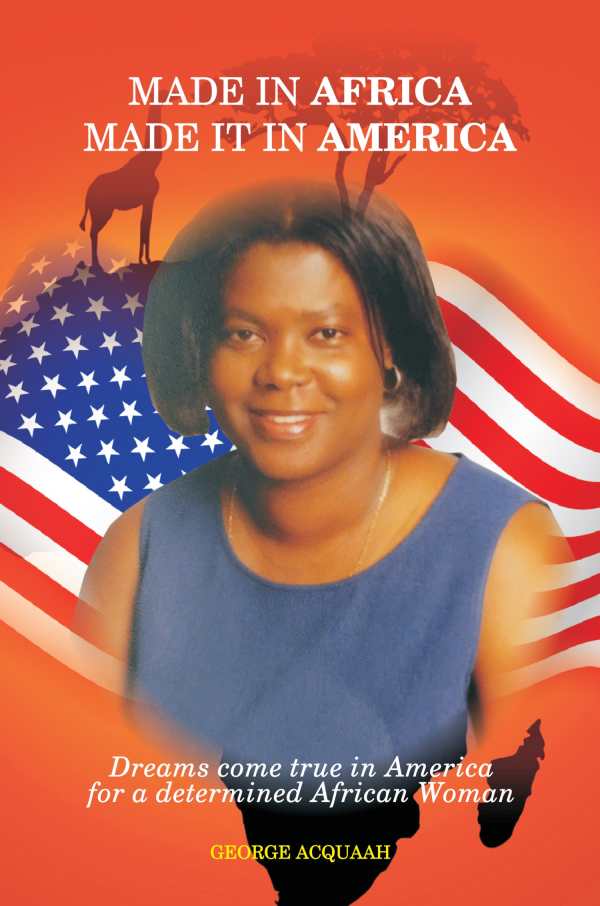Made in Africa, Made it in America
George Acquaah’s biography of his wife, Theresa Acquaah, is emphatic and sentimental in honoring its subject as a strong, confident, and remarkable woman.
George Acquaah’s biography Made in Africa, Made it in America is about Theresa Acquaah, his wife; it functions as an ode to her perseverance, dedication to her family, and hard work.
The book begins in Ghana, when its subject, then a young woman, married her biographer. The young couple moved to America for his work. There, they navigated culture shock while figuring out how to build a life together. Everyday differences like garage sales, coupons, and fast food restaurants combined with massive changes, like a new education system that the couple learned to work within.
Because the couple had only seen the United States portrayed on television as a land of plenty, they had difficulty reconciling themselves to the suffering that they saw many Americans face, including problems like hunger, poverty, and racism. Further, they faced some of these challenges themselves. And while working to understand their new home, they both began to build demanding careers and a family.
The book celebrates its subject for raising the couple’s four children while navigating her own medical challenges and sacrificing her needs to do what was best for the family. As it honors and celebrates her, though, it leans into long, flowing passages. Instead of relying on action or fleshed-out scenes, it is an emotional, opinionated rendering of her experiences. It becomes repetitive in its delivery of constant praise; Acquaah is called the “Wonder Woman” of her husband and children’s lives, and the book boasts that she earned her doctorate of medicine at the age of forty-four.
Following a formula and in matter-of-fact prose, the book is chronological in naming the challenges that Acquaah experienced, and in following these events with sometimes indulgent expressions of awe for what she endured and how she handled herself through challenges. Further, in some moments, especially where the book muses on marriage as an institution and the role of women in society, the text is dated. While it is wholehearted about expressing support for Theresa Acquaah’s own career, contradictions arise: the text embraces gender-based stereotypes, casting women as the default keepers of a home, and calling men who become homemakers “Mr. Mom.”
George Acquaah’s biography of his wife, Theresa Acquaah, is emphatic and sentimental in honoring its subject as a strong, confident, and remarkable woman who never stopped following her dreams.
Reviewed by
Molly Sprayregen
Disclosure: This article is not an endorsement, but a review. The publisher of this book provided free copies of the book and paid a small fee to have their book reviewed by a professional reviewer. Foreword Reviews and Clarion Reviews make no guarantee that the publisher will receive a positive review. Foreword Magazine, Inc. is disclosing this in accordance with the Federal Trade Commission’s 16 CFR, Part 255.

